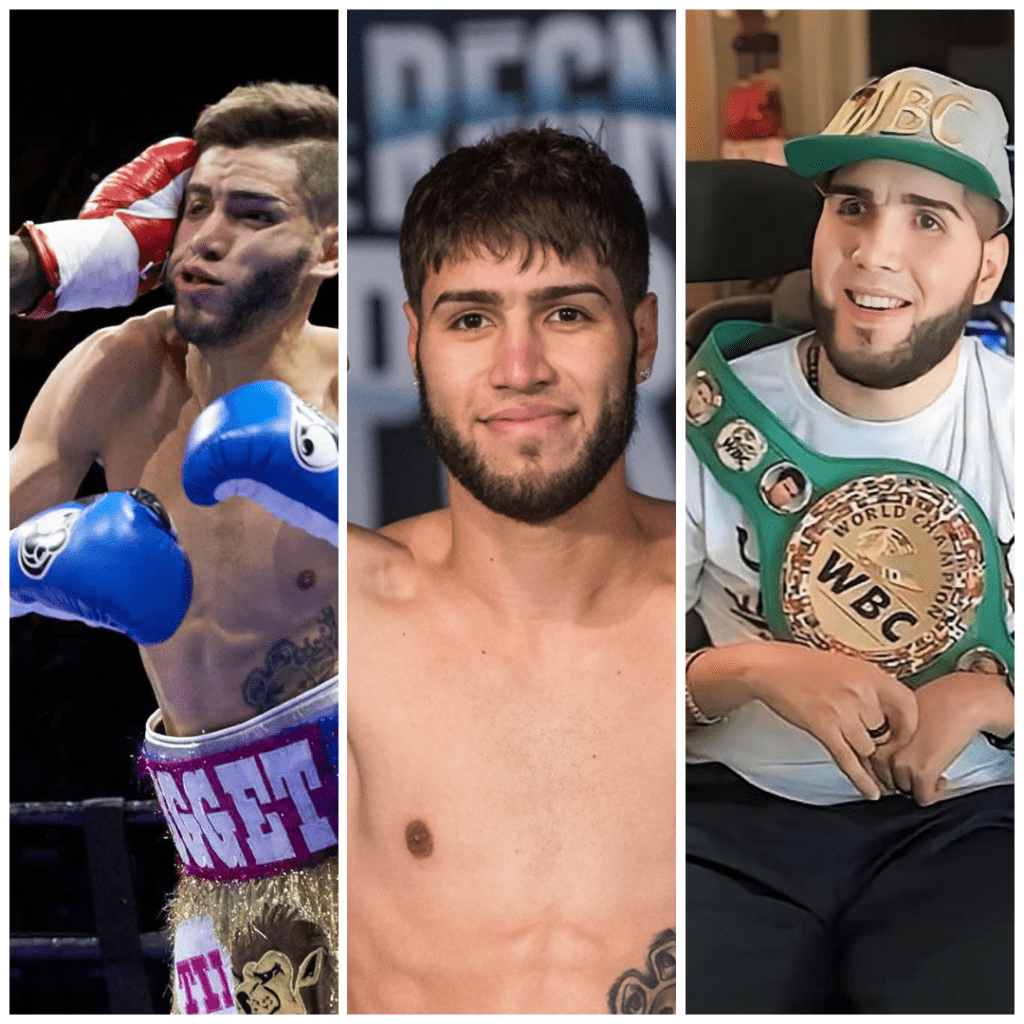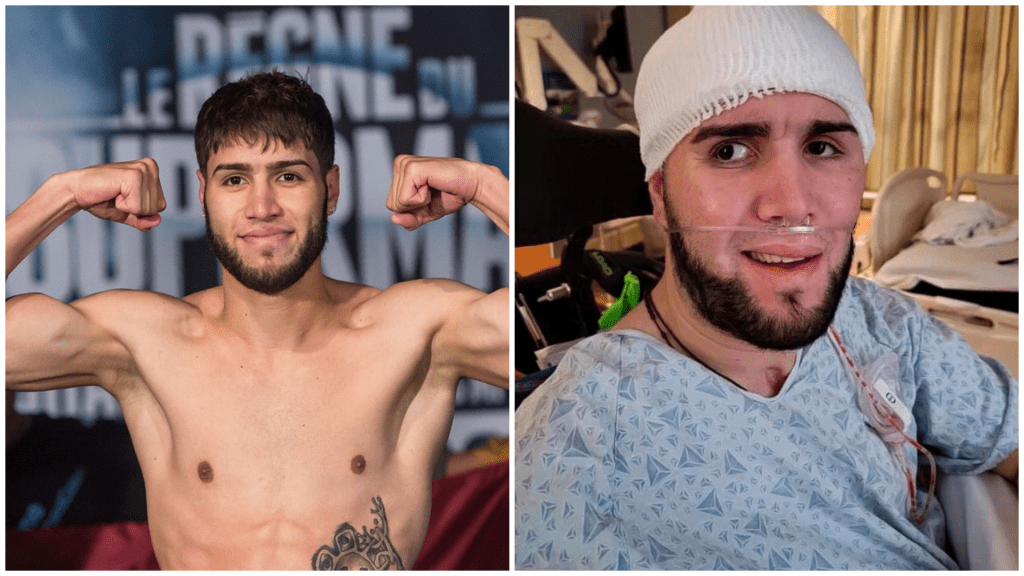
How a Series of Illegal Punches Back of the Head Left Boxing Prospect Prichard Colón in a Coma — And We’re Still Fighting for His Future
On the night of October 17, 2015, the arena buzzed with energy. Prichard “Digget” Colón, a Puerto Rican-American boxer, walked into the ring with a crisp focus, wearing blue and gold trunks and carrying dreams bigger than any belt. He was undefeated, talented, and full of promise.
As he warmed up, boxing legend Sugar Ray Leonard praised him on NBC: “I really like this kid,” he said. “He’s ready.”
In the early rounds, Prichard shimmered. He landed sharp jabs, maintained distance, and seemed in control. But something ugly started brewing behind the glamour: Terrel Williams kept hitting him on the back of the head—rabbit punches, which are illegal and dangerous. Colón raised his glove several times to alert the referee, but the fight continued.
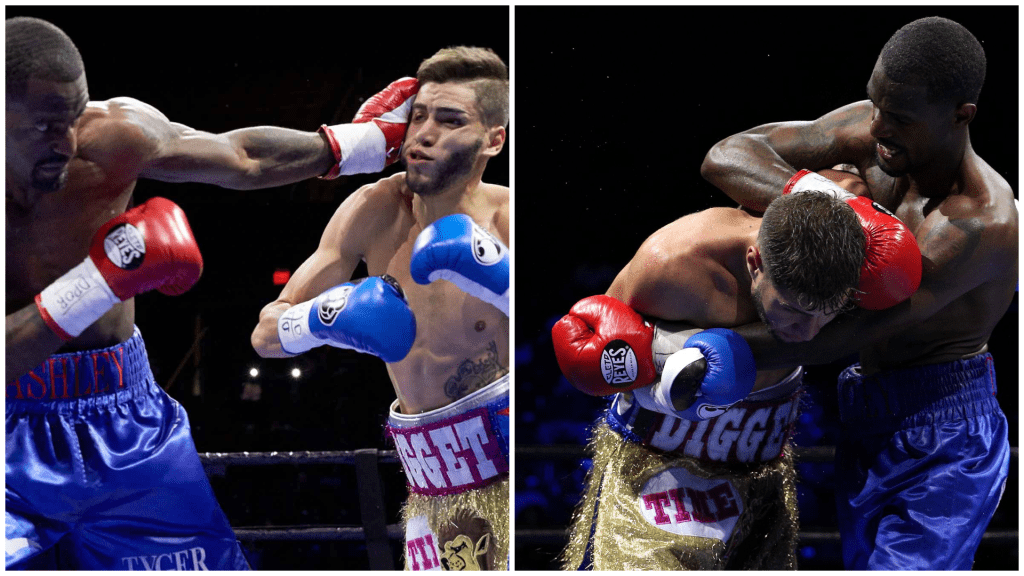
As the rounds progressed, Williams grew more aggressive. By round seven, a particularly forceful rabbit punch sent Colón down. He staggered to his feet, clearly dazed. The referee took a point away from Williams but allowed the match to continue.
Colón told his corner he was dizzy. His team alerted the ringside physician, but the doctor waved it off. “He’s fine,” the doctor said. “Just shake it off.”
The ninth round came. Williams landed another shot behind the head. Moments later, Colón was on the canvas again. In a confusing sequence, his corner removed his gloves, possibly thinking the fight had ended on a foul or disqualification.
What happened next changed everything.
Back in the dressing room, Colón vomited and collapsed. He was rushed to a nearby hospital where doctors discovered a brain bleed. He underwent emergency surgery. He had suffered a subdural hematoma, a serious type of internal brain bleeding.
A Life Fought from the Inside, Family Behind Every Breath
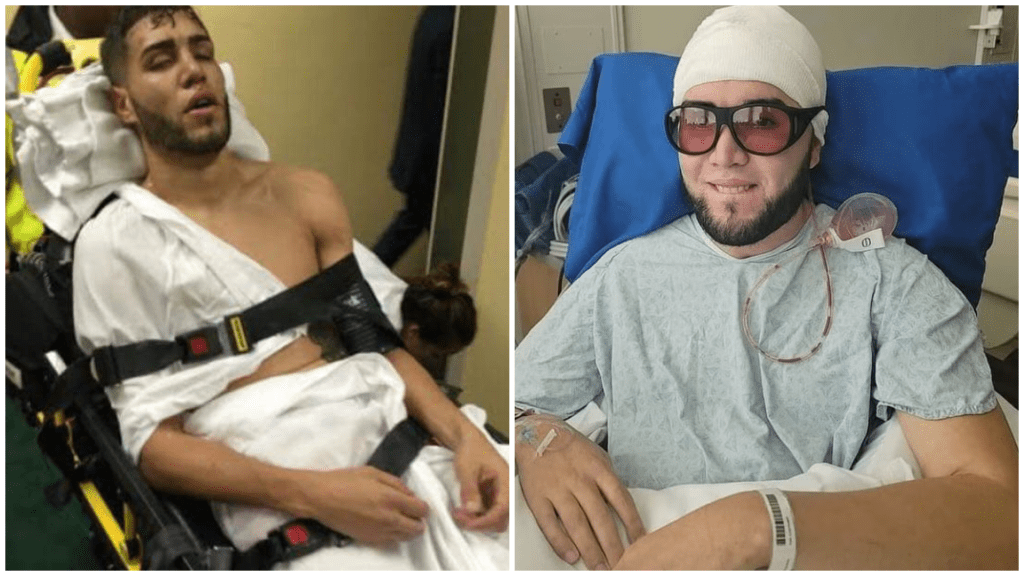
Prichard survived the surgery. But he didn’t wake up.
He remained in a coma for 221 days. When he finally emerged, he couldn’t speak, move, or eat on his own. He was diagnosed as being in a minimally conscious state. That meant he showed occasional signs of awareness—like responding to sounds or recognizing voices—but could not function normally.
His parents, Nieves and Richard, stepped into the roles of full-time caretakers. Their son, once destined for greatness, now needed round-the-clock medical attention. His mother quit her job. His father relied on military disability support. Medical costs reached thousands per week.
Over time, glimmers of hope began to appear. Colón could nod or smile. He reacted to music. He even managed to raise a finger in response to questions in therapy. These tiny victories became major milestones for a family clinging to hope.
His sister began posting updates on TikTok and YouTube. Millions of fans began following his journey, offering prayers and emotional support. People across the boxing world—from fans to champions—rallied behind the young fighter who could no longer fight for himself.
Despite this, his condition remains severe. Prichard is still unable to talk or walk. He breathes, blinks, and smiles. But his days are spent in a hospital bed or wheelchair, supported by caregivers and family, still locked in the aftermath of that night in the ring.
A Fight Beyond the Ring: Reform in His Name
The aftermath of the Colón–Williams fight sparked major controversy. Why were so many rabbit punches allowed? Why didn’t the referee stop the fight? Why didn’t the doctor take his symptoms seriously?
The World Boxing Council later introduced the “Prichard Colón Rule”, requiring referees to immediately intervene when rabbit punches occur. Fighters can now be disqualified after fewer warnings, and ringside physicians are expected to take any neurological complaint seriously.
Colón’s family also filed a lawsuit in 2017 against the fight promoters and ringside medical staff, accusing them of negligence. The case is still ongoing.
Meanwhile, Williams, the boxer who landed the illegal punches, went quiet for years. When he finally spoke out, he expressed remorse and said he prays for Prichard every day.
The boxing world has changed because of Colón. There’s more awareness about brain safety, better training for referees, and stronger medical oversight. But for the Colón family, it came at a heartbreaking cost.
Why His Story Still Matters
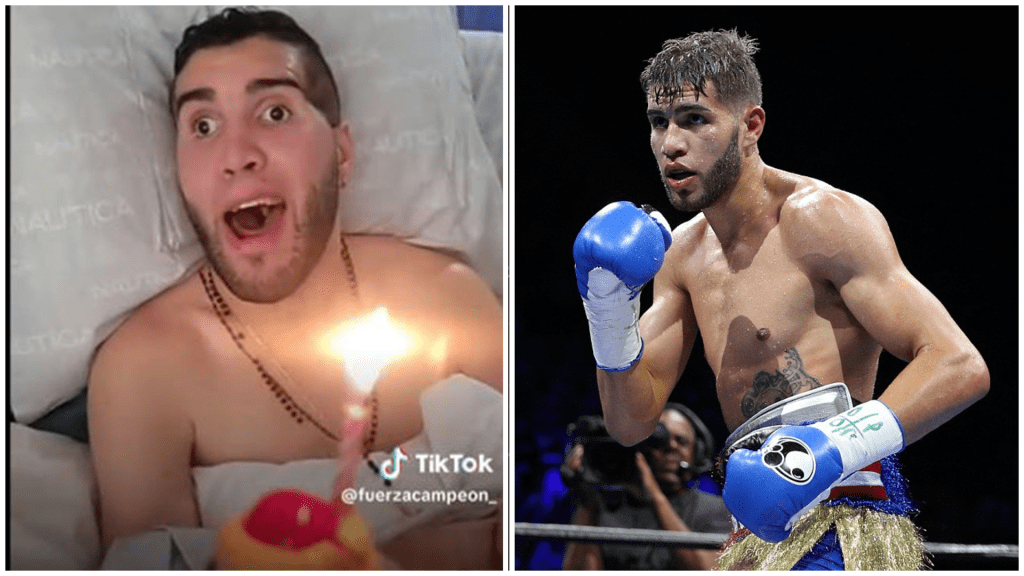
Prichard Colón’s story is not just a boxing tragedy — it’s a human one.
It’s a reminder that sports carry real risks. That rules exist for a reason. That one ignored warning can change a life forever.
Even in silence, Prichard speaks volumes. He’s become a symbol for safety in boxing. A face that reminds everyone — fans, fighters, referees, and promoters — that no win is worth a life.
He didn’t lose that night. The system failed him. And now, every small nod, every lifted finger, every smile is a victory that inspires millions.
Prichard Colón is still fighting. And in many ways, so are we.
